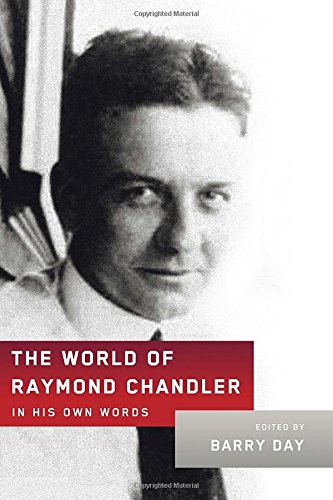

Most ebook files are in PDF format, so you can easily read them using various software such as Foxit Reader or directly on the Google Chrome browser.
Some ebook files are released by publishers in other formats such as .awz, .mobi, .epub, .fb2, etc. You may need to install specific software to read these formats on mobile/PC, such as Calibre.
Please read the tutorial at this link: https://ebookbell.com/faq
We offer FREE conversion to the popular formats you request; however, this may take some time. Therefore, right after payment, please email us, and we will try to provide the service as quickly as possible.
For some exceptional file formats or broken links (if any), please refrain from opening any disputes. Instead, email us first, and we will try to assist within a maximum of 6 hours.
EbookBell Team

4.3
18 reviews Raymond Chandler never wrote a memoir or autobiography. The closest he came to writing either was in—and around—his novels, shorts stories, and letters. There have been books that describe and evaluate Chandler’s life, but to find out what he himself felt about his life and work, Barry Day, editor of TheLetters of Noël Coward (“There is much to dazzle here in just the way we expect . . . the book is meticulous, artfully structured—splendid” —Daniel Mendelsohn; The New York Review of Books), has cannily, deftly chosen from Chandler’s writing, as well as the many interviews he gave over the years as he achieved cult status, to weave together an illuminating narrative that reveals the man, the work, the worlds he created.
Using Chandler’s own words as well as Day’s text, here is the life of “the man with no home,” a man precariously balanced between his classical English education with its immutable values and that of a fast-evolving America during the years before the Great War, and the changing vernacular of the cultural psyche that resulted. Chandler makes clear what it is to be a writer, and in particular what it is to be a writer of “hardboiled” fiction in what was for him “another language.” Along the way, he discusses the work of his contemporaries: Dashiell Hammett, James M. Cain, Hemingway, Fitzgerald, Agatha Christie, W. Somerset Maugham, and others (“I wish,” said Chandler, “I had one of those facile plotting brains, like Erle Gardner”).
Here is Chandler’s Los Angeles (“There is a touch of the desert about everything in California,” he said, “and about the minds of the people who live here”), a city he adopted and that adopted him in the post-World War I period . . . Here is his Hollywood (“Anyone who doesn’t like Hollywood,” he said, “is either crazy or sober”) . . . He recounts his own (rocky) experiences working in the town with Billy Wilder, Howard Hawks, Alfred Hitchcock, and others. . .We see Chandler’s alter ego, Philip Marlowe, private eye, the i